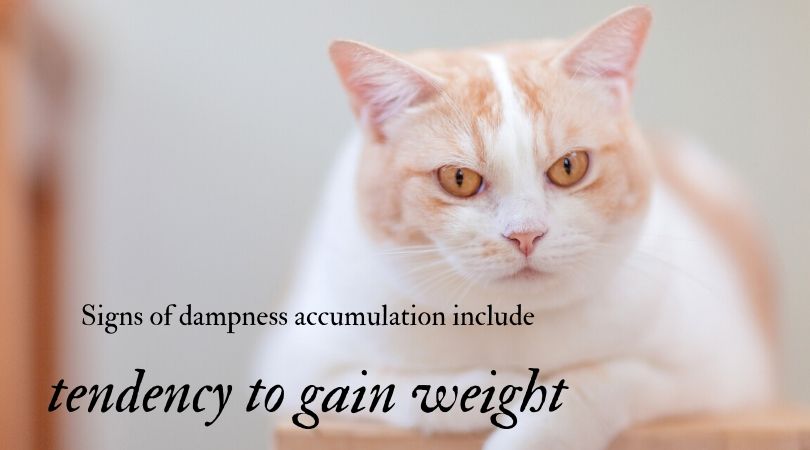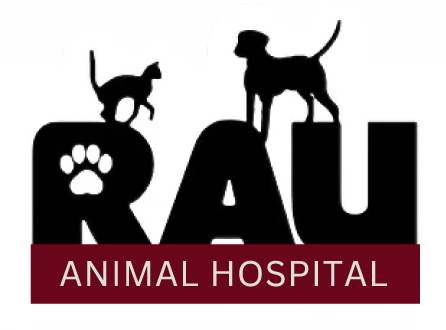One of the most commonly diagnosed pet pathologies from a Traditional Chinese Veterinary Medicine (TCVM) perspective is dampness accumulation in the body. This is true for both dogs and cats. When a pet eats and absorbs a meal, the food is made into usable substances by the body. If the pet is getting too much, however—for instance, too many carbohydrates—some of what is absorbed is made into unusable substances, or “dampness.”
Signs of Dampness Accumulation in Pets
Dampness can accumulate anywhere, and how it looks depends on where it is building up. Longstanding dampness often leads to inflammation or heat in the body because it obstructs the flow of normal energy and fluids. Signs of dampness include tendency for weight gain, chronic fluid discharges like conjunctivitis, vaginitis, mucus in stools, and waxy ears, to name a few. If heat is generated, there will be recurring inflammation like bladder infections, bronchitis, colitis, skin allergies, and ear infections.

Addressing Dampness in Dogs and Cats
The root of dampness in the body lies in nutrition and genetic tendencies. When we work on the manifestations of dampness from an integrative perspective, we work on cooling the heat and draining the dampness from the body through diet and herbs. Acupuncture and traditional medication can help augment this treatment in some cases as well.
If you have any questions about dampness, integrative medicine, or the general health of your dog or cat, please contact our office!

